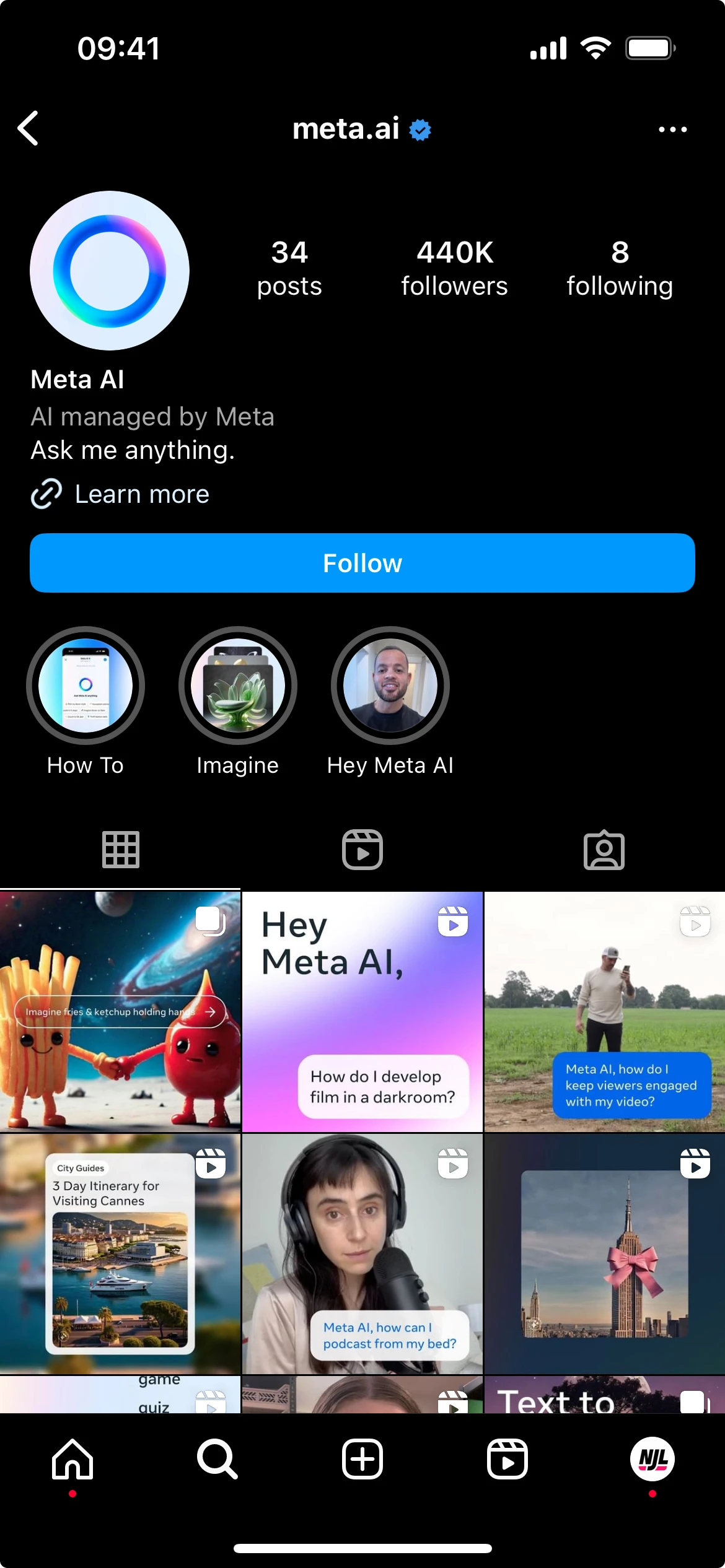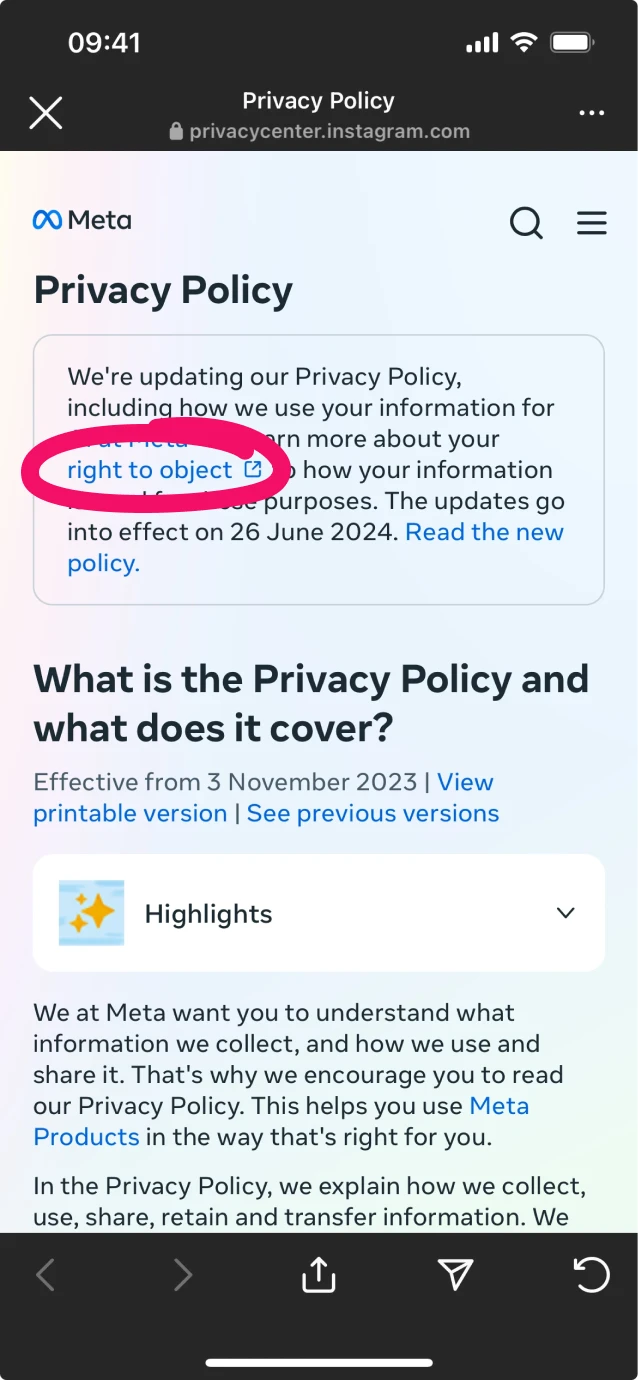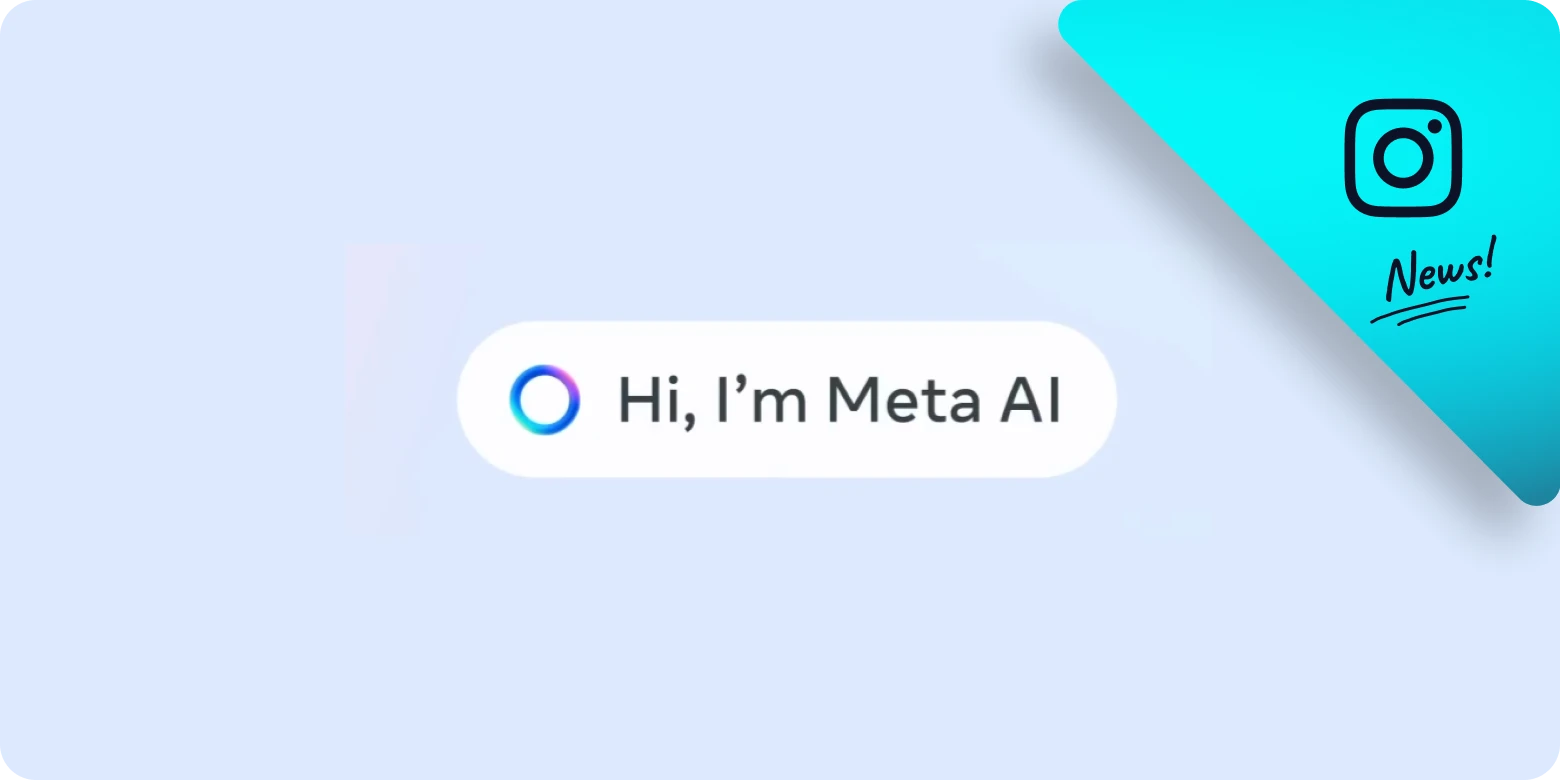Instagram has recently announced the arrival of Meta AI, a virtual assistant that promises to revolutionize user experience on the platform. But what does this mean for you? Let’s explore how it works, and most importantly, the criticisms it has faced from users.
What is Meta AI?
Meta AI is a virtual assistant developed internally by Meta, similar to ChatGPT. The major advantage is that it works directly from Instagram’s search bar, answering your questions and providing assistance in various formats, including text, video, and photos. This means you can stay within Meta’s apps without needing to open other apps or sites.
The technology behind it is based on the Llama 3 system, one of the most advanced and free AI platforms available today. This versatility means that Meta AI not only responds to questions but can also create visual content on demand, like images or videos. For example, you can ask Meta AI to generate an image of a dog on a skateboard, and you’ll get an instant result.
However, it’s important to note that Meta AI is currently not available in Italy unless you use a VPN. Additionally, the integration of Meta AI raises some privacy concerns, as it involves using public user data to improve and train the AI itself. We will delve into this aspect further below.
How does it work?
As mentioned, Meta AI responds directly from the search bar on Instagram. The interaction is simple and intuitive: just press the search bar and type your question. You can ask Meta AI to suggest animated videos, generate poems, or even answer technical questions. However, we must point out that it is still a new feature, so the quality of responses might be somewhat limited, especially as the complexity of requests increases.
P.S. Meta has also created an official Instagram profile to explain and demonstrate how to best use Meta AI. You can find it below!

Meta AI: privacy concerns
Meta has announced that it will use public data from Instagram and Facebook users to train its AI. This includes posts, photos, captions, and messages sent to the virtual assistant (excluding private messages). Overall, this is nothing different from what we might expect: this approach is very common among big tech companies, as access to large amounts of data is essential to improve AI capabilities.
As with everything, the use of public data to train AI presents both advantages and disadvantages.
✅ On one hand, it allows Meta to continuously improve the accuracy and effectiveness of its virtual assistant’s responses. This means we can use a constantly updated and improving service for free (remember, if you’re not paying for it, you are the product), which, if used wisely, offers many advantages.
❌ On the other hand, it raises important privacy issues. Some users might not be comfortable with the idea that their public content is being used to train an AI. Not to mention intellectual property, a very hot topic when it comes to artificial intelligence.
How to opt-out of Meta AI data use
For those concerned about their privacy, it is possible to deny consent to the use of their data. To do so:
- Access your profile settings on Instagram.
- Scroll down to the “About” section.
- Press “Privacy Policy.”
- Click on “right to object” (a link in the first block of text).
- Fill out the form explaining why you wish to oppose the use of your data.

NJL’s Comment
The introduction of Meta AI on Instagram undoubtedly represents a significant step forward in user experience. Once again, Meta adds a feature aiming to provide a comprehensive suite and prevent its users from leaving its ecosystem. Sometimes they hit the mark, other times the results have been a poor copy of what others have done better.
However, the fact that Meta has been investing in artificial intelligence and Web 3.0 for years – enough to decide to change its name – gives hope that Meta AI might indeed become an effective feature.
The process to deny consent for data use is overly complicated: it seems they want to discourage and make it as difficult as possible! Who knows if this will be yet another case where Meta is forced to backtrack on how it treats and manages user data. But even if that happens, by then they would have already taken the data they needed…
👉 P.S. We’ve created a section on our blog where you can find all the most important Instagram updates in one place, explained clearly and simply! You can find it

Leave a Reply